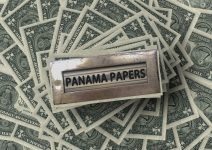Government Criticised for Failing to Act over Panama Papers

Investigations by the Australian Tax Office (ATO) suggest that tax evasion strategies employed by now-infamous law firm Mossack Fonseca have indeed been used to conceal and aid serious criminal conduct by Australians.
The head of the ATO, Chris Jordan, says Australians identified in the Panama Papers include 80 that are listed in the Australian Crime Commission intelligence database. More Australians could be implicated when details of more than 200,000 named companies are uploaded next month.
“These are not people with outstanding parking fines or traffic notices,” Mr Jordan said. “They are in the database of serious and organised criminal holdings.”
The Crime Commission “conservatively” estimates that serious and organised crime costs our country $15 billion every year. Labor Senator Sam Dastyari has expressed concerns about the conduct, saying it “shows the web of tax minimisation and avoidance, and serious criminal activity and behaviour, are linked.” He is also critical about the government’s lack of response to the explosive allegations contained in the Papers.
Use of Tax Havens
As previously outlined, an estimated $7.5 trillion is currently held in offshore tax havens across the world, which is around 8% of the world’s financial wealth. It is believed that a significant portion of this money is derived from illegal activities, including money laundering, tax evasion and sanctions dodging, by criminal organisations and shady companies.
The ATO’s taskforce, Operation Wickenby, is especially concerned that tax and secrecy havens have been enabling organised criminal groups to hide proceeds of crime from law enforcement and tax authorities.
The Panama Papers suggest that, with the assistance of shady lawyers and other “professional facilitators”, a range of wealthy individuals including political leaders and heads of criminal organisations have been creating and using shell companies and trust arrangements to conceal evidence of ownership.
Government Inaction
Forty prominent Australians have signed an open letter to Prime Minister Malcolm Turnbull, expressing frustration over the government’s failure to act on the explosive information.
The letter calls upon Turnbull to scrap secrecy laws that allow accountants and lawyers to help clients siphon away public money, and to take action against Australian individuals and companies implicated in the illegal tax evasion schemes.
The Tax Justice Network has also strongly criticised a recent Senate Report for failing to recommend two vital reforms – protection for whistle blowers and disclosure requirements for subsidiaries in offshore tax havens.
Under public pressure, the Liberal Party has now signalled an intention to create a register of beneficial owners of shell companies. This would finally honour a 2014 G20 pledge to make ownership information publicly available.
If elected, the Federal Labor party has promised to introduced laws allowing whistle blowers to report shady tax evasion practices without fear of criminal prosecution. Labor leader Bill Shorten has also proposed laws whereby those who take action against whistle blowers could themselves face a two year prison sentence, in addition to civil action.
The Way Forward
Mr Jordan assured Australians that the ATO is attempting to crack down on international tax evasion, saying “We do have a strong kit bag to utilise… I do want to assure the community we’ll leave no stone unturned, as we put the whole picture together.” He says the organisation is working with the Federal Court to fast-track any such cases through the court system.
Mr Jordan participated in a meeting of the OECD’s Joint International Tax Shelter Information and Collaboration network last week, discussing international approaches to tax crimes. He says:
“An action plan was developed and member countries undertook to build a comprehensive tax risk picture for their own jurisdiction, and share information… All 35 jurisdictions represented at the meeting signed-up to take joint compliance action where appropriate.”
It is hoped that the Australian government will follow the lead of other countries and use the information contained in the Panama Papers to confront the issue of international tax evasion, prosecute those implicated and pass laws which protect whistle blowers from having to face imprisonment for exposing those who engage in international tax evasion.






